100 years of farming
Humans have been cultivating Quebec’s soil since time immemorial: first the First Nations, later the early settlers of New France, and today our farmers. Before the advent of steam power in the early 20th century, agriculture was what we call subsistence farming, aimed at building up food reserves that would sustain farmers and their families throughout the year. Surviving the harsh winters was the most important goal.
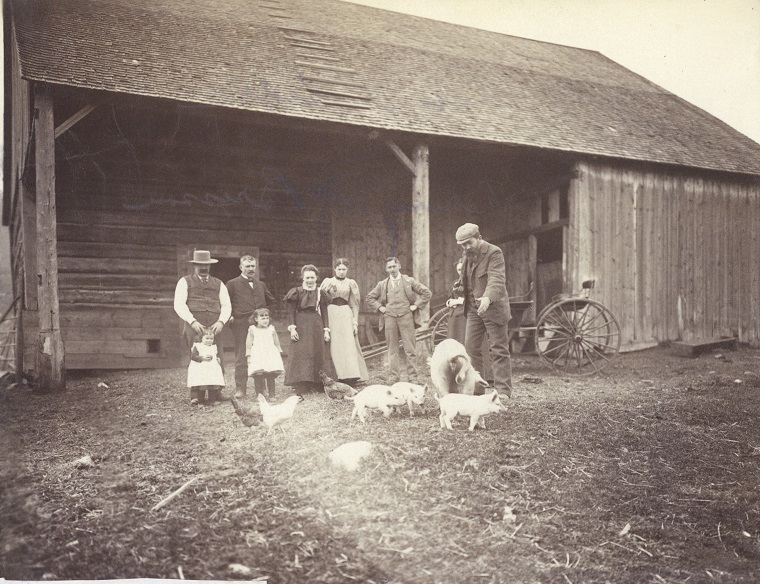
With the dawn of the industrial era and the production of mechanized tools, farming changed radically. Tractors, mills, harrows, harvesters, and other machines replaced animal-drawn and hand-powered tools for harvesting, transportation, and working the land. These new machines meant farmers could accomplish more and increase their production.

As the population of towns and cities grew, farmers started travelling there to sell their goods. The situation was far from ideal, however, as they often couldn’t get a fair price for their products. Fair pricing is ultimately what led Quebec farmers to start organizing.
During the 1920s, the vastly influential Church backed the development of cooperatives, whose values were aligned with Christian principles of sharing and helping others. On October 2, 1924, nearly 2,500 farmers converged on Quebec City and demanded the right to make a decent living from their work, which received support from the clergy. This movement—to unite farmers so they could defend their interests—was led by passionate organizers, namely the agronomists Joseph-Noé Ponton and Firmin Létourneau, who would play a pivotal role in the founding of the Union catholique des cultivateurs (UCC).
This was nothing short of a revolution in Quebec agriculture, and it led in turn to a thorough transformation of agricultural legislation. The time had come for new markets to be developed for Quebec’s farmers, and for them to gain access to markets that had been protected. In the years following the founding of the UCC, Quebec farmers organized around a range of important issues: buying, selling, processing, price negotiation and more. Also during this period, the Union helped farmers develop their knowledge and skills through distance learning courses, study and discussion circles, and other local gatherings. There was so much to do to help farmers advance—but so much was possible!
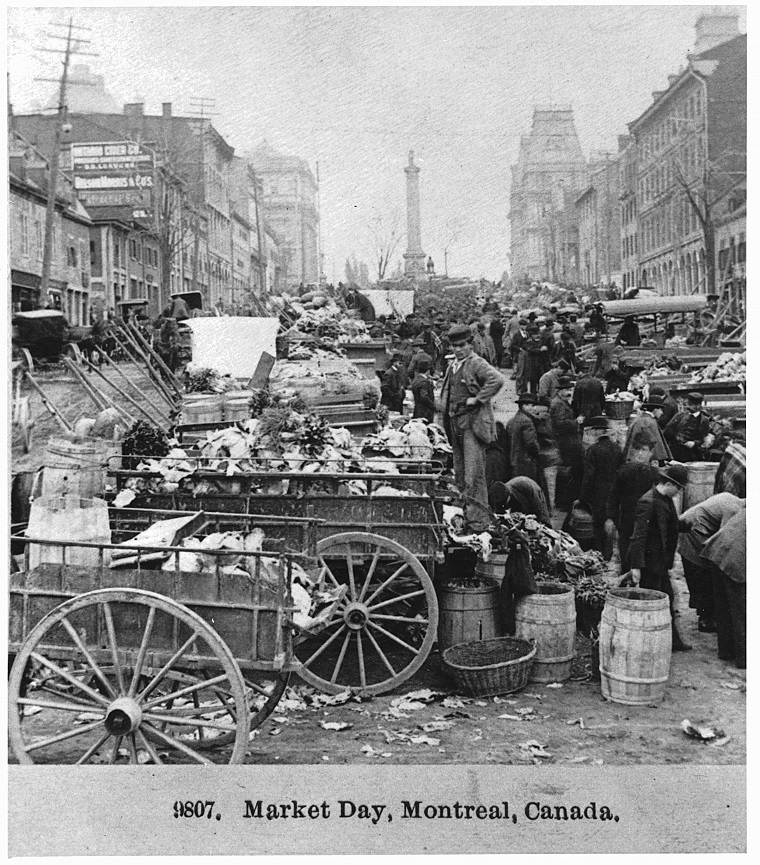
From day one, the UCC (today the UPA) has helped to advance agriculture and agri-food in Quebec, through its contributions to legislation such as the Farm Credit Act, the Act to promote rural electrification by means of electricity cooperatives (1945), the Act respecting the marketing of agricultural, food and fish products, the Farm Producers Act, and more. Through the strength of collective action, the Union has helped to develop collective marketing tools to ensure that agricultural producers all across Quebec have adequate market access.
Throughout its history, the UPA has worked tirelessly to defend the rights and interests of its members. As provided for in the Farm Producers Act, the UPA is the official voice of all agricultural producers, including those who do not join the organization as members. Without fail, our organization has fought at the front lines of any struggle aimed at building a strong, resilient, and sustainable agriculture sector. It is a sector that is in on the ground floor of tomorrow’s society—a sector in which technologies and resource conservation are the tools used wisely to protect our planet.
A century later
As we mark 100 years since the creation of the Union catholique des cultivateurs, this the perfect opportunity to reflect on how far we’ve come. The agricultural sector is now a major economic driver for Quebec’s bio-food sector, which represents 6% of Quebec’s GDP (2021) and employs 56,000 workers each year. Today, 42,265 producers operate 29,380 farm businesses across Quebec. In meeting and exceeding every expectation, their work is what puts food on of our tables. As our society changes, our farmers are adapting. It’s more important than ever that we choose local products and support our agricultural sector to keep alive and thriving.
Agriculture also continues to be a key factor in regional development. All over Quebec, farms stretch over properties large and small. Crops are grown in fields and in greenhouses, horizontally and vertically, in water and even in forests. Animals are raised in buildings, often with the help of specialized tools that measure their growth with incredible precision. In short: Quebec’s agricultural producers good and ready for the agriculture of tomorrow. But complacency is not an option: agriculture still gets taken for granted and mishandled all too often.
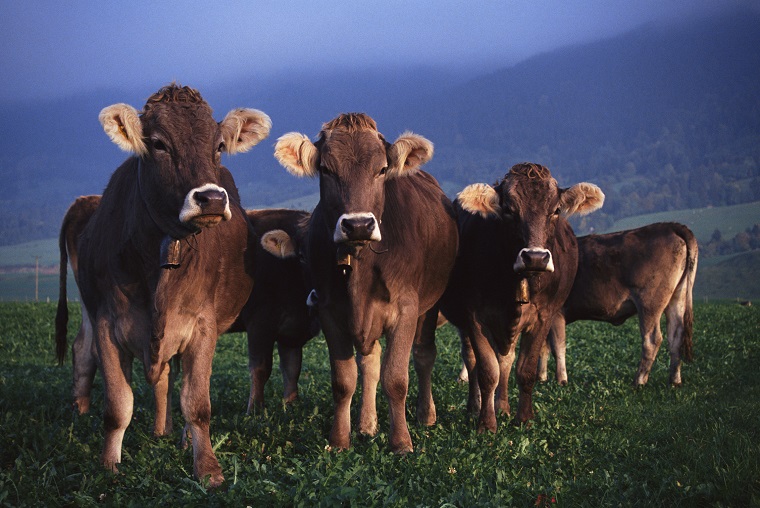

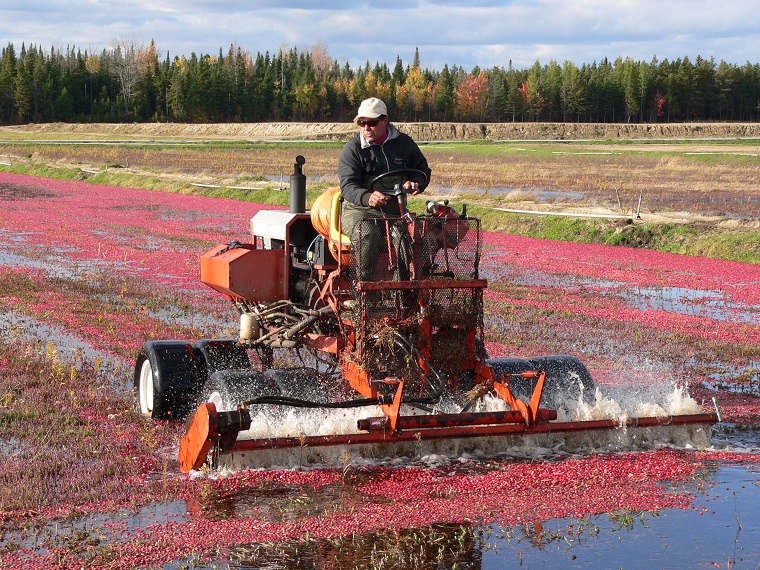
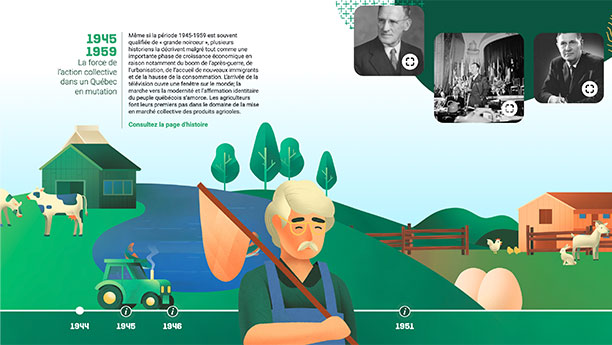
100 years of feeding Quebec
The UPA’s 100th anniversary is a unique opportunity to learn about the landmark events in the history of Quebec agriculture that have in turn shaped the province’s history. For instance: while the first farmers’ movements began in 1789, it was over 200 years later, in October 1924, that nearly 2,500 farmers from all over the province gathered in Quebec City and founded the Union catholique des cultivateurs. Dive into our timeline to learn more!
Explore the timeline This link will open in a new window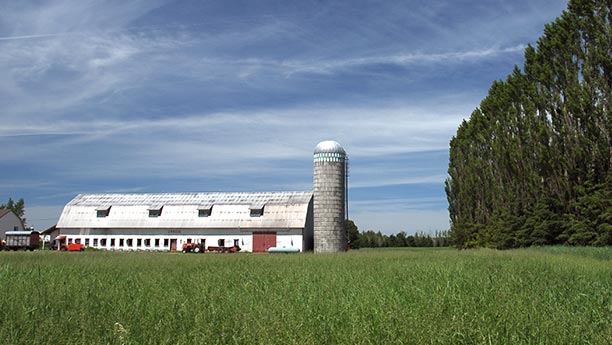
The farming crisis : Put us at the heart of the solution!
Looking to the future, our food autonomy is a serious concern. An unprecedented confluence of social, environmental, climatic, and economic factors that have put Quebec agriculture in an extremely vulnerable position.
Find out more
Food autonomy Growing it together!
The demand for local food in Quebec is stronger than ever before; and so is the desire to achieve food autonomy (also known as food self-sufficiency). Learn more about this vital objective, why agriculture is absolutely central to it, its benefits, and how we can get more Quebec products on our plates.
View topic
The fields are a-changing Agriculture and the environment: what’s the situation today in Quebec?
It’s a changing world, and the way we farm is changing with it. With advances in knowledge and technology, our methods are constantly evolving, allowing us to produce high-quality food while reducing our impact on the environment.
View topicProducers
Facts about agriculture in Quebec
Whether you’re simply curious or you want to be prepared for your next trivia night, take a look at some fascinating economic benefits and other statistics on Quebec agriculture. We’ve crunched the numbers!
Find out more This link will open in a new window